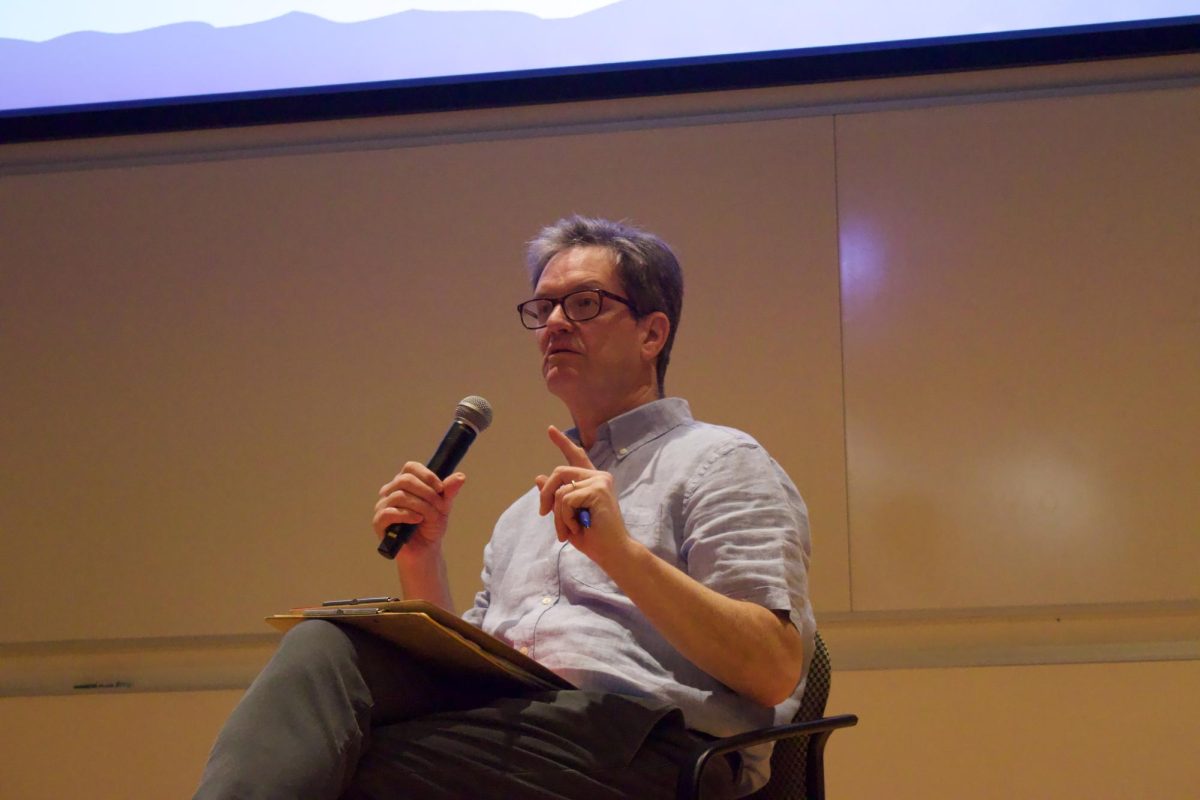Click to read more about the “pro-hacker,” safer helmets, reusable rockets, and more. Creative commons image from Steve Jurvetson.
By Lauren Yang

1. Pro-hackers a thing of a future?
Professional hackers may soon be a profession in the future. The idea stems from professional gamers or professional athletes, who are able to earn a substantial salary from their profession. Especially since hackathon prize money has been increasing these past few years (some as high as one million dollars), hackers may soon be able to pay for basic living necessities with just their prize money. However, critics are worried that the “pro-hacker” attitude may amp up the competitiveness and destroy the culture of helping others that is distinct to hackathons. Read more here.
This short clip documents Blue Origin’s latest launch. Video from Blue Origin.
2. Blue Origin, a reusable spacecraft company, launches and lands, for the second time in a row.
On Jan. 22, Blue Origin’s reusable rocket, New Shepard, made history as it launched and safety landed back on Earth for the second time in a row. New Shepard first launched and landed in Nov. 2015. This landing is a huge milestone for reusable rockets, as it proves that the same physical robot can be used over and over again. Some argue that this feat puts Blue Origin ahead of SpaceX, another reusable spacecraft company, in the race to reusable rockets. Read more here.

3. Safer Helmets, Safer Athletes
A company called Vicis recently developed a new helmet for football players aimed toward preventing concussions. With a flexible, shock-absorber-like structure, Vicis’ helmets claim to reduce the force of impact by 20-50 percent. Currently, Vicis’ helmets are around four to five times the cost of traditional helmets, and the company is trying to reduce its costs to make their helmets more affordable. Read more here.

4.Minecraft: Combining Education and Gaming
MinecraftEDU, the educational version of the popular game, Minecraft, was acquired by Microsoft this past Tuesday. MinecraftEDU is similar to Minecraft, except it features enhanced worlds that support tutorials and lesson plans. Teachers and students can explore the virtual world together, allowing pupils and educators alike to collaborate with each other. Read more here.

5. Facebook Introduces Sports Stadium
Facebook released a new feature, called Sports Stadium, that aims to provide sports fans with a singular place to watch, discuss, and analyze sports. Users are able to watch a game in real time, comment on play, view stats and analysis from experts, and more. Currently, the feature only supports American football in the United States, but Facebook hopes to expand it so baseball, soccer, and basketball fans around the world can utilize this platform as well. Read more here.








